I've got two fairly large sized areas sectioned off for free-ranging poultry in my yard. Currently I'm not taking advantage of the space as I only have 2 chickens. The reason I have poultry is to have sustainable source of meat and eggs also for ferteliser and bug control. The one thing that's stopping me getting more chickens is housing but this will be built soon.
Currently these two areas I have sectioned off have very high grass as there is far too much for my 2 Araucana bantams to eat. One of them is currently broody so it's not eating any grass. I want to have enough poultry in the fields that I won't have to mow the grass.
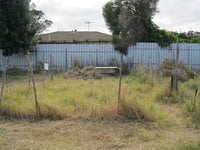
The first field is 12.5 x 3.5m = 44m2. The only thing in this field is a bathtub that I plan to use as a duck pond.
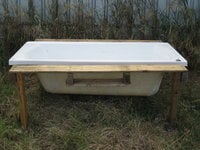
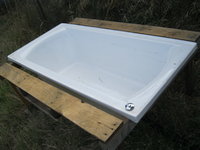
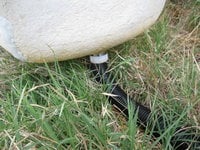
I built a frame out of a pallet. The tub use to be a watering trough for some sheep I had. There was a crack in it I sealed it up with a product that is supposed to be safe for drinking water. The drain goes into a pipe with holes that leads to some trees I planted in the second field. So every week the duck water can be drained out and will fertilise my trees.
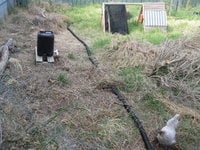
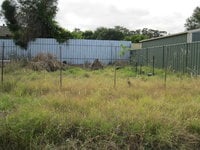
The second field is 12.5 x 8.5m = 106m2 which is where my 2 Aracauna bantams currently reside. They live in a movable A frame chicken tractor that is starting to fall apart.
So I want some recommendations as to what breeds of chicken and duck would be most suitable and how many to get. Especially need help with selecting a duck breed as I have no experience with ducks but have had chickens for several years.
The duck breed should have a good tempermeant in terms of getting along with other poultry, good layers, good grazers, good foragers, ideally not fly, be as quiet as possible (i have those annoying neighbours that complain about everything). Broodiness would be preferred.
The plan is to have chickens and ducks in seperate fields and in seperate housing.
How many ducks and chickens would I be able to keep in each field if I made them equal in size (75m2) without overgrazing?
How many ducks could utilise that bathtub pond if I were to empty it every week?
Currently these two areas I have sectioned off have very high grass as there is far too much for my 2 Araucana bantams to eat. One of them is currently broody so it's not eating any grass. I want to have enough poultry in the fields that I won't have to mow the grass.

The first field is 12.5 x 3.5m = 44m2. The only thing in this field is a bathtub that I plan to use as a duck pond.



I built a frame out of a pallet. The tub use to be a watering trough for some sheep I had. There was a crack in it I sealed it up with a product that is supposed to be safe for drinking water. The drain goes into a pipe with holes that leads to some trees I planted in the second field. So every week the duck water can be drained out and will fertilise my trees.


The second field is 12.5 x 8.5m = 106m2 which is where my 2 Aracauna bantams currently reside. They live in a movable A frame chicken tractor that is starting to fall apart.
So I want some recommendations as to what breeds of chicken and duck would be most suitable and how many to get. Especially need help with selecting a duck breed as I have no experience with ducks but have had chickens for several years.
The duck breed should have a good tempermeant in terms of getting along with other poultry, good layers, good grazers, good foragers, ideally not fly, be as quiet as possible (i have those annoying neighbours that complain about everything). Broodiness would be preferred.
The plan is to have chickens and ducks in seperate fields and in seperate housing.
How many ducks and chickens would I be able to keep in each field if I made them equal in size (75m2) without overgrazing?
How many ducks could utilise that bathtub pond if I were to empty it every week?



